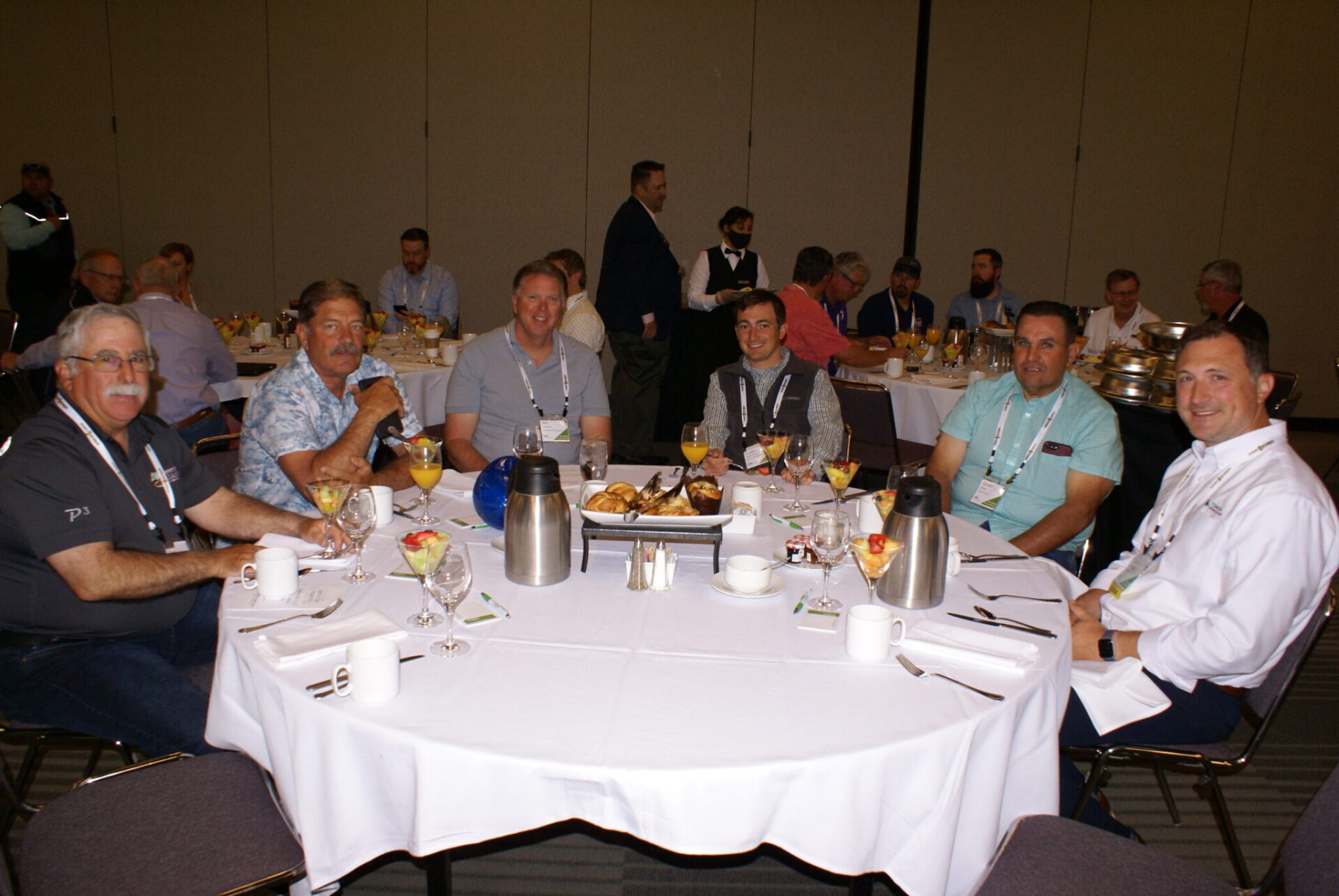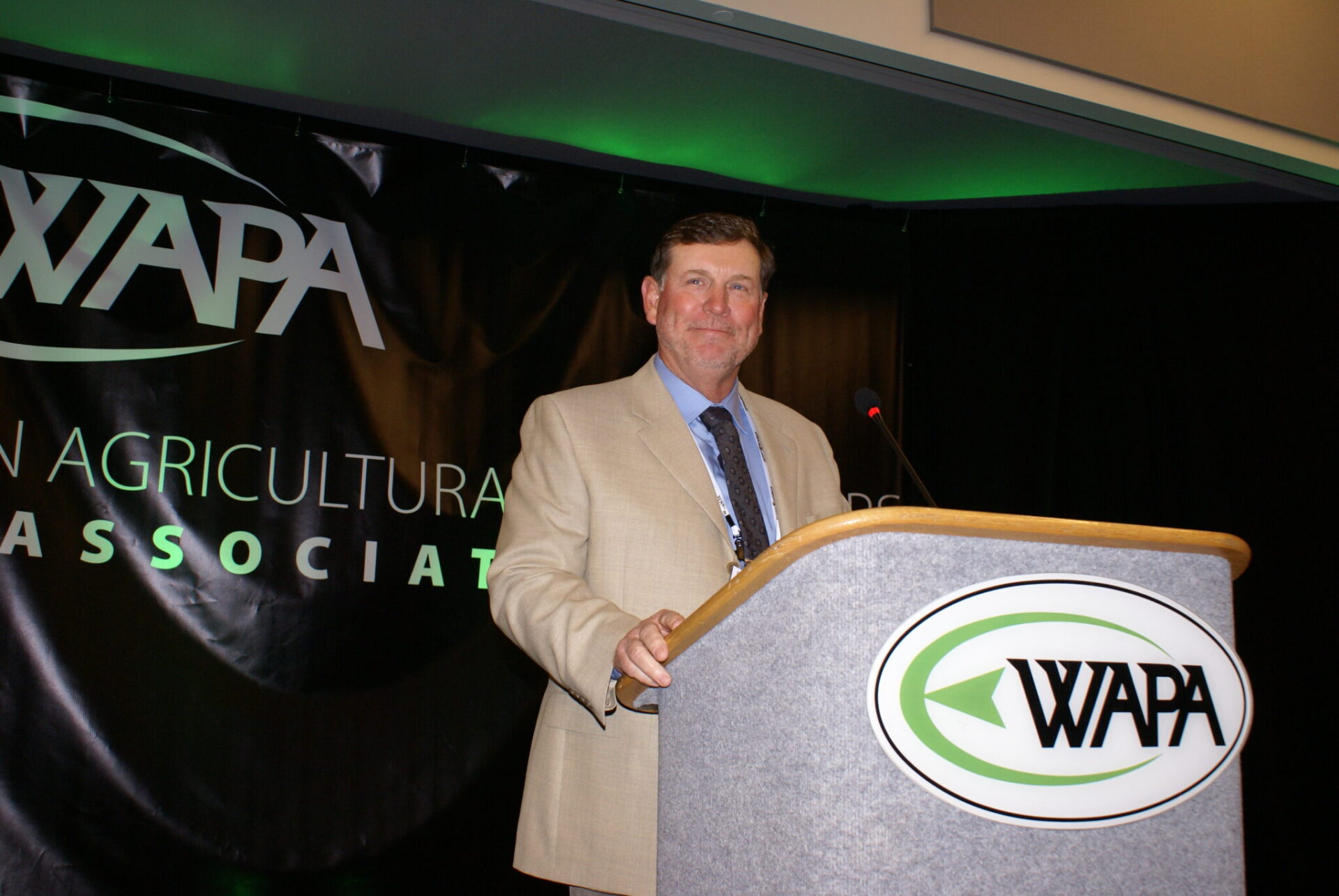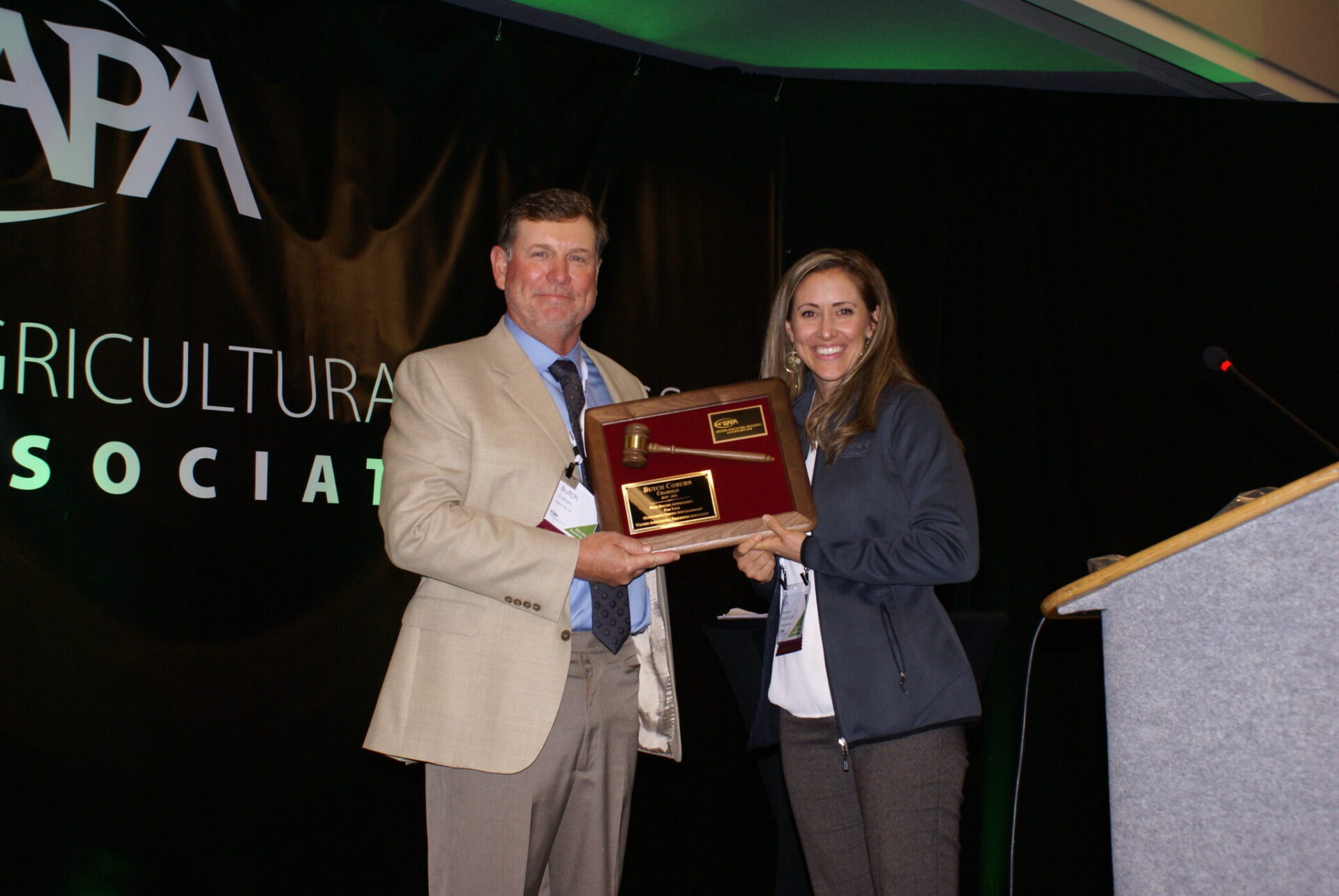
The Western Agricultural Processors Association held its annual meeting in June, providing one of the first opportunities for nut industry leaders to gather in person for two days of networking, business, trading and learning. Held in partnership between West Coast Nut magazine and WAPA, the annual meeting in Monterey including two days of talks and business for some 300 handler/processor members and associated exhibitors.
“It’s been great to see people in person again,” said WAPA President and CEO Roger Isom. “We had some new faces and some familiar faces. The ag industry is based on communication; whether it’s at the coffee shop or out in the field in the pick-up, we like to talk face to face.”
For many of the speakers at this year’s convention, the operative word was fight. From issues surrounding air permits, food safety, trucking and labor, WAPA members heard how the association advocates for its nut industry members on the regulatory and legislative front every day.
“We fight for our members on the front end to help [handlers] implement their programs, and then we fight for them on the back end to help them with appeals when there are issues,” Isom said. WAPA also invests significant resources following and helping craft policy that makes common sense for the industry and brings California to some sort of parity with other states.
“We can either give up and move to Texas or we can fight,” Isom said.
“WAPA has the time to be there in the regulatory office or in the state capitol,” said Kirk Squire, grower relations manager for Horizon Nut Company and a member of the WAPA board of directors. “Being part of WAPA affords us that talking ground we would not have time for as a company.”

Industry Issues
Chris McGlothlin, director of technical services for WAPA, reported on the association’s efforts to get incentive funding for ag tractor replacement rules set to go into effect in 2024 and its engagement with Sacramento over funding to implement the ag burning rule, which will phase out agricultural burning by 2025 in the Central Valley.
To illustrate WAPA’s efforts to engage legislators, state assembly members Autumn Burke and Heath Flora discussed their bipartisan efforts to understand and represent each other’s districts. While Burke is a democrat representing Los Angeles and Flora is a Republican representing the San Joaquin Valley, the two work together in a bipartisan way to find common grand and common-sense action that impacts California nut handlers, including legislation around cap and trade, pesticide mill tax increases, trucking and water.
Dan Walters, a political reporter who writes for CALmatters.org, a non-profit devoted to California public policy issues, said during his guest talk that this type of bipartisanship is rare in politics today but essential for moving the state forward. Particularly for agriculture, which has lost clout over the last few decades, engaging legislators will be critical.
“Not only has ag lost clout in in the mind of many legislators, ag is the enemy,” Walters said. “You’ve got to get that seat at the table or you will be on the menu.”
Several handlers in attendance shared their top concerns facing the industry. From supply chain issues brought on by COVID, to water, hulling capacity, labor, trucking shortages and more, handlers universally said there are a number of hot-button issues handlers and processors are up against as they prepare to handle this year’s nut crops.

Supply Chain
Dan Pronsolino, general manager of Cortino Hulling Group, which includes Dunnigan Hills Hulling & Shelling and two other huller/shellers, serves as secretary/treasurer on the WAPA board of directors.
He said supply chain constraints throughout all levels of the growing and handling process are creating hardships for handlers as they gear up for harvest. Parts and supplies they are used to having on the shelf are in short supply. And like consumers trying to buy replacement parts for a faulty refrigerator, or a new car or appliance, they are having to adapt to a shortage created by supply chain disruptions.
“We had a couple color sorters coming in that took 40 days from the day they arrived at the Port of Oakland to get to our facility,” Pronsolino said. Rubber products, such as belts, are just being delivered that were ordered last October.
Handlers are coping by ordering ahead to anticipate their parts needs and have spare parts already on the shelf. Here, too WAPA has helped direct its members to suppliers and manufacturers.
Horizon has put advance orders in for basics like shovels and rakes and parts for the water truck or tractor.
“These are all items that are showstoppers so you’ve got to have them here when you need them,” Squire said.
Water
Handlers agreed that lack of water is a serious threat, and although the ag industry in California has lived with drought for more than 20 years, the system is at a breaking point for the state’s ag industry.
“The way we say it in our board room is, ‘We own a couple thousand acres of some of the best farmland in the world, but without water, it’s just dirt,” said Don Barton of Gold River Orchards.
While growers are making it through this year through deficit irrigation and rationing what water they do have, Ali Amin, president of Primex, said if the drought continues into next year it will create a lot of uncertainty.
He said while pistachio growers continue to plant, he is concerned about the impacts to the industry 5 to 10 years down the road if climate trends continue. Deficit irrigation also leads to production issues, including a higher percentage of closed shells, which impacts yield and revenue.
Already this year’s crop is impacted and if there is no water for post-harvest refill, next year’s will be as well.
“If we don’t have a wet winter this year we are going to have a major issue on our hands,” Pronsolino said.

Labor
Handlers agreed that the labor supply issue has been a serious problem this year.
“Were having a horrible time finding labor out there and the buzz is that nobody wants to work,” Squire said. “Is that true or does nobody want to work in ag anymore?”
Many handlers/processors are paying signing bonuses and wages above prevailing scale for both skilled and unskilled positions to have the staff on hand to process this year’s harvest. As minimum wage increases, Amin said it puts pressure on labor costs across the board, from sanitation line operators to forklift drivers and mechanics.
And that is when they can find workers.
“The vast majority of seasonal people who would usually be available are quite happy to stay at home,” Pronsolino added.
Many handlers are turning even more to automation where possible, from robotic palletizing to electronic sorting, to reduce their labor reliance where possible.
Squire said handlers will always need labor but the incentives to automate are ramped up by the labor shortage.
“A piece of equipment might cost $300,000 but it doesn’t call in sick,” he said.
Amin said Primex is also turning to automation, refiguring its processing area with new electronic sorters, to slowly reduce labor. The processor works to build long-term relationships with its work force to encourage them to return year after year, but acknowledged that a tighter pool could lead to more breakdowns and quality issues if they are not careful.
Hulling Capacity
In the almond industry in particular, handlers said bumper crops continue to push the industry beyond hulling capacity. At the same time, many handlers are pausing expansion plans to see what the weather will bring in terms of water supply. Many growers are debating letting older less productive orchards go and many have halted plans to plant new acreage as they wait to see the outcome of next year’s snowpack.
Pronsolino estimated there are about 180 million pounds worth of planted almond acres beyond hulling capacity, and another 10 to 12 plants will be needed to handle that acreage throughout the state. Cortino Hulling Group plans to increase its capacity by 10 to 20 percent at each of its plants. The facility already runs 24-7 during the season, so it is looking to larger equipment to process more nuts per hour.
Amin said Primex, the state’s third largest pistachio processor, plans to add four hullers for 2022 and an additional two facilities in the near term to increase its capacity from 90-100 million pounds to 130-140 million pounds. He said three growers are also putting up their own processing facilities to handle industry growth in the near future. He said handlers will find a way to process larger crops.
“If you grow them, we will figure out how to process them,” he said.

Shipping and Logistics
Truck driver shortages have also been a significant issue throughout the nut industry. WAPA is working to move regulations that would increase the load capacity to allow more product to be moved in a single load.
Handlers are faced with having to pay more for trucking or build added storage to give them more hauling flexibility. Ultimately, all these additional costs put a squeeze on grower returns.
“Trucking is usually paid directly by the grower, and as it gets tighter, they get squeezed and ultimately, although we try to absorb what we can, it finds its way to the grower return,” Pronsolino said.
At the same time, COVID lockdowns led to significant congestion at ports, as reported in previous issues of West Coast Nut, and that has disrupted the flow of nuts to market.
With containers returning empty to key export markets before they can be loaded, and uncertainty around shipping dates, handlers have worked extra hard to get their logistics organized for an orderly flow of California nuts to market.
Squire said Horizon like other handlers last year was weeks or months behind on shipments, just due to the difficulty to get containers or get loads on a ship. As with many of these issues, WAPA is working with maritime agencies and others to try and alleviate the impacts of these issues on the industry.










